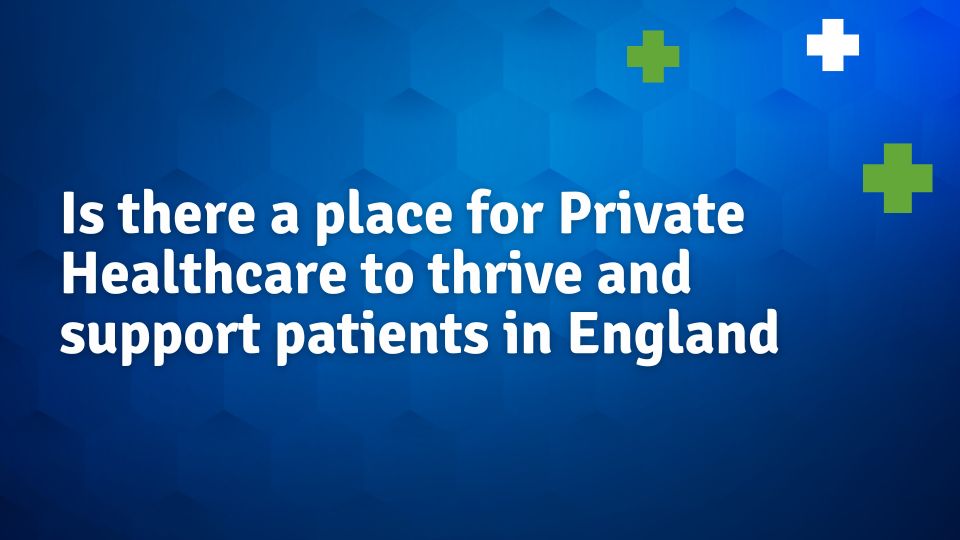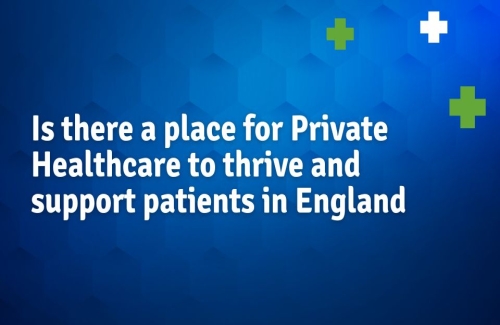
Introduction:
In England, individuals have access to healthcare through both, the all inclusive National Health Service (NHS) and also through a much smaller private healthcare service infrastructure. This blog post aims to compare these two healthcare systems, focusing on factors such as waiting times, quality of care, and costs, to help readers make informed decisions about their healthcare options.
The National Health Service (NHS):
The NHS is a publicly funded healthcare system in England, offering a wide range of services free at the point of use. Despite challenges with waiting times, the NHS is known for providing high-quality care to all patients, regardless of their ability to pay and famously quoted as a “cradle to grave”, total service available to all citizens. The NHS as part of the Department of Health and Social Care received a budget of over £180 billion 2 years ago. This has increased year upon year despite significant financial pressures on the treasury.
Within the NHS, there are 4 broad service providers, mostly NHS run but some services are commissioned from independent providers such as GP practices.
General Practice in the NHS : The NHS’s Primary Care model has been the envy of the world and has effectively been a personalised filter for all patients who get their own doctor and in turn most common conditions are managed across an effective primary care network infrastructure commissioned now by regional ICBs ( Integrated Care Boards) and mostly run by General Practitioners who are independent contractors leading an empowered multi-professional primary care team set.
The current state of General practice has become perilous as year upon year of disinvestment in core primary care services as well as in key infrastructure investment. GP Practices continue to struggle due to this disinvestment and are increasingly starting to buckle.The current General practice model is possibly the best value investment for the tax payer. For just less than 7-9% of the overall budget for NHS healthcare , General Practice offers over 96% of all patient contacts in the system, sustaining the unique NHS model. Besides disinvestment, other factors that place Primary Care GP services under increasing pressure are, understandably increasing expectations from patients over the years as they become better informed from Social media etc and most importantly from ailing services in Secondary care due to the long waiting lists for appointments and elective care in hospitals.
Secondary and Tertiary Care Services in the NHS:
Once again our secondary and tertiary care services use to be the envy of the world, but though we maintain a firm commitment to quality and patient safety, the post pandemic period and continuing pressures on this public sector run services continues to take its toll with even longer waiting lists and staffing issues. Many of these hospital trusts manage larger and larger budgets as amalgamations have taken place across cities and regions.
Waiting Times in the NHS : Long waiting times for treatment and appointments are a significant and continuing challenge within the NHS due to high demand and continuing pressures on resources. The pandemic and post pandemic crisis period has continued to challenge the ability of the NHS to remain effective especially in relation to elective waiting times for planned surgeries and appointments. The current crisis within healthcare in the NHS has further been compounded by the financial meltdown for support services to councils and Social Care. Health and Social care are intertwined as a breakdown in social care services leads to health related issues.
Is the NHS safe in looking after your health ? Maintaining Quality and Safety in the NHS : Despite record waiting time challenges, the NHS attempts to maintain high quality standards across services further supported by a Care Quality Commission which tries to maintain a watchful eye. Globally the NHS is continued to be recognised and acknowledged for providing high quality comprehensive and compassionate care, adhering to strict professional standards and undergoing regular inspections to ensure quality and patient safety. This area across hospitals is again becoming seriously challenged as staffing, workload and infrastructure challenges continue to hinder healthcare professionals wanting to provide excellence in clinical care services.
Current State of Private Healthcare in England:
Private healthcare services offer an alternative to the NHS, providing immediate or faster access to non emergency treatment and services on a fee-paying basis or private insurance paid services. While offering advantages such as shorter waiting times and access to private rooms, private healthcare comes with an accompanying cost that may not be accessible to everyone.
What does Private Healthcare cost : Private healthcare services typically require patients to pay out-of-pocket or through insurance policies for treatment, consultations, and procedures, making it inaccessible to some individuals who cannot afford it. Large corporate firms do offer private healthcare insurance as a perk for employees and many ample trader or self employed individual may take out policies though their businesses go cover themselves and their families. The actual cost of appointments and procedures is comparable to most other western nations but often the infrastructure is not as comprehensive or as big as the private healthcare units in the United States.
The National health service has for decades consistently procured services from the private sector. This may be in the form of additional elective procedures, or in the form of easy outpatient appointment precious procuring fix price outpatient procedures. Previously under the payment by results process private providers could in certain areas in certain specialisms, offer the services as part of the national health services choice policy for patience.
Comparison: When comparing the NHS to private healthcare, individuals must consider factors such as accessibility, waiting times, and costs. While the NHS offers free and comprehensive care but with longer waiting times, private healthcare provides faster access to treatment but at a cost.
Conclusion: Both the NHS and private healthcare in England have their advantages and challenges. While the NHS offers accessible care but with waiting time issues, private healthcare provides faster access but at a cost. Ultimately, individuals must consider their healthcare needs and financial circumstances to make the best choice for their situation.
Love this Post? Spread the World


